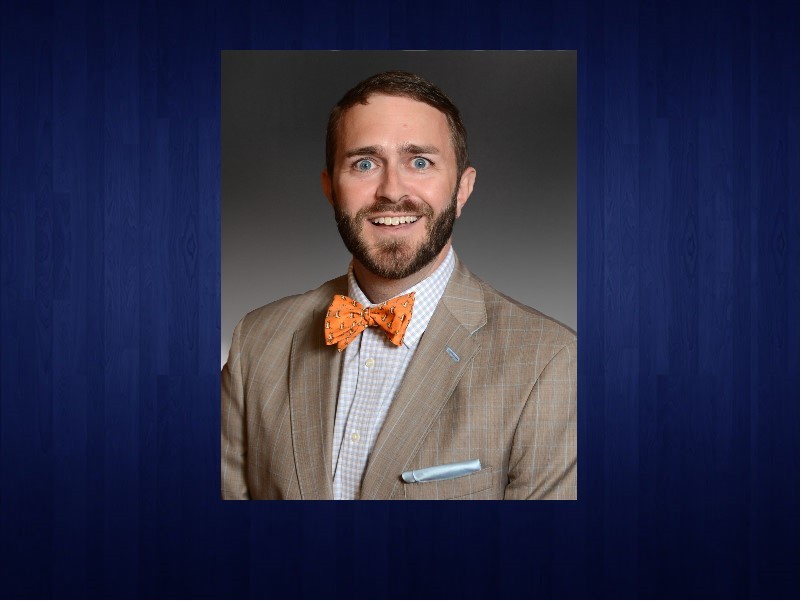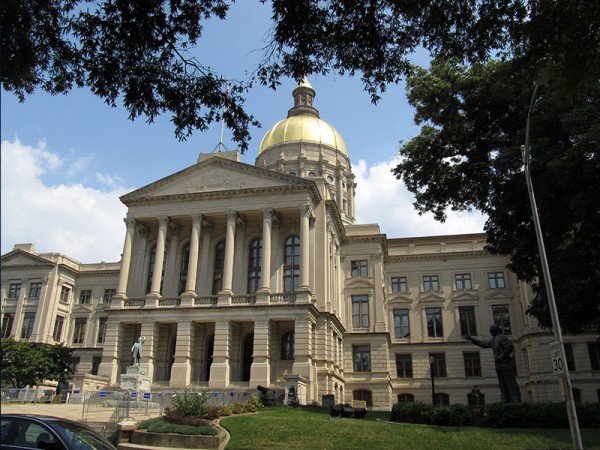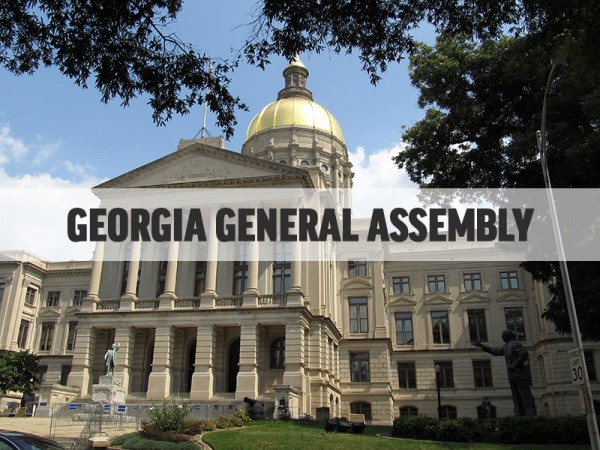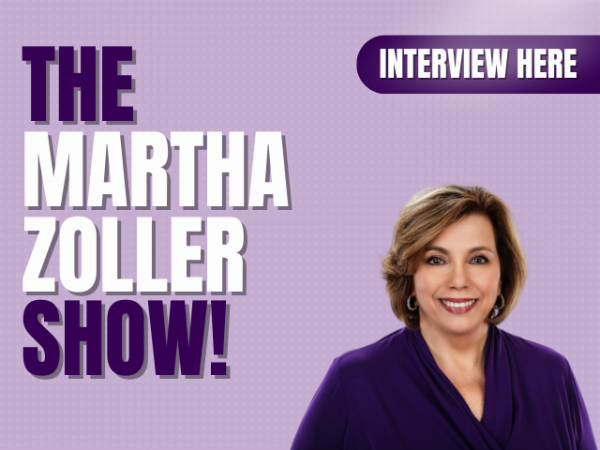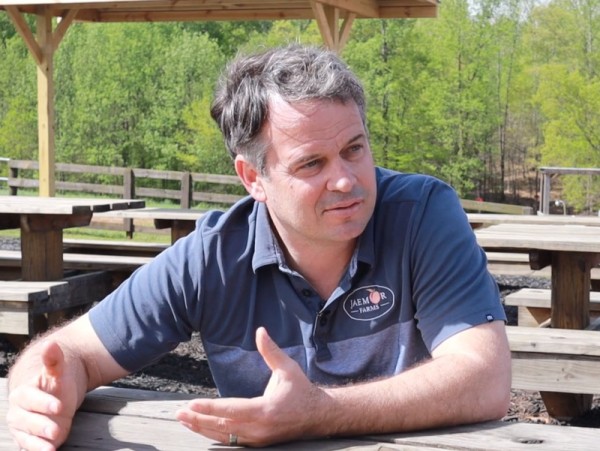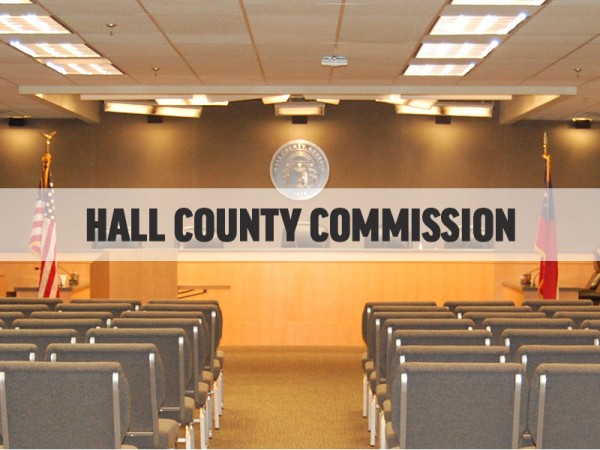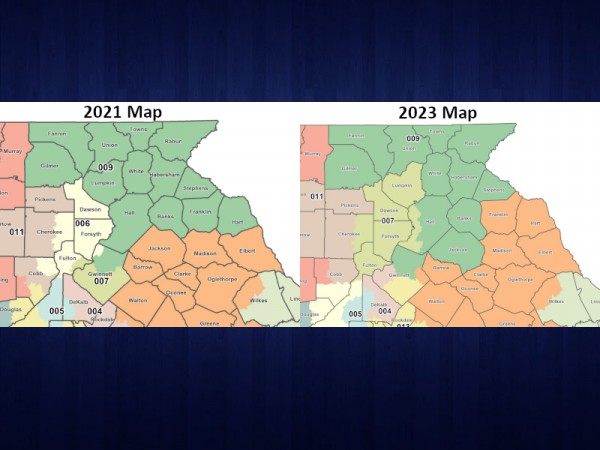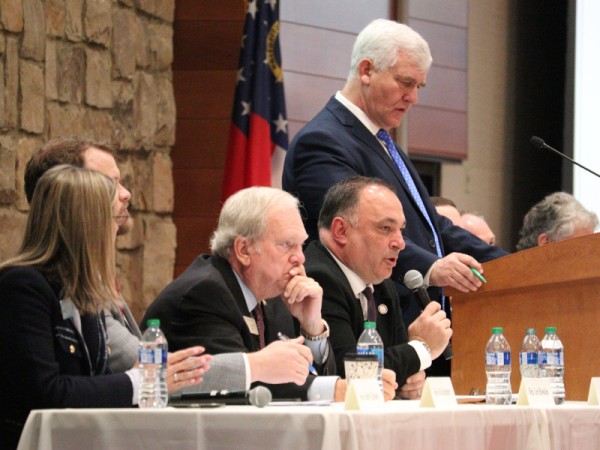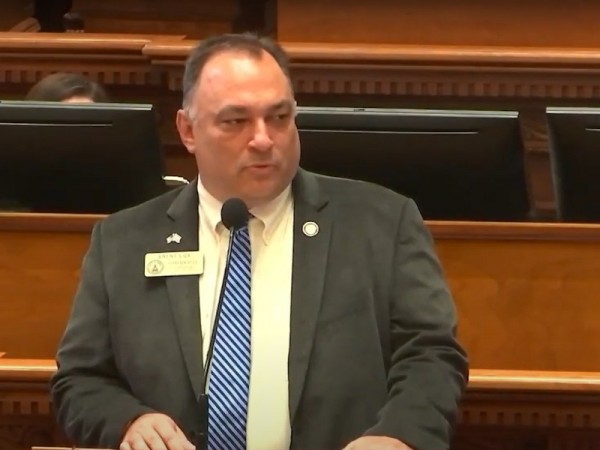This election-year session of the Georgia General Assembly promises some hot-button issues like constitutional carry, election integrity and elimination of the state income tax, but the only thing lawmakers are required to do during the 40-day session is approve a balanced budget.
The state has had record tax collections for about 18 months thanks to a strong economy and huge federal spending to compensate for the economic fallout caused by the COVID-19 pandemic in the first half of 2020. So legislators won't be looking for budget cuts.
Instead Gov. Brian Kemp is expected to push for pay raises for teachers and other state employees. He'll also push for increased funding for law enforcement, mental health and education. All of that spending will come from a $2 billion surplus.
At least one Hall County legislator is happy to see more spending for mental health issues.
"We have to address mental health in a very, very serious way, in a very big way," said Rep. Matt Dubnik. "And I think some of the initiatives that have already come from the House show our seriousness and our dedication to that obligation for the people of Georgia."
Leaders in both chambers support at expansion of mental health resources in Georgia. This includes looking for ways to attract more people into the field.
That might include changing the amount of time mental health workers in Georgia must stay in internships before becoming psychologists. The legislature may also look at adding mental health clinicians to police forces to better deal with lawbreakers with mental health issues.
STATE INCOME TAX: State Sen. Butch Miller of Gainesville is proposing eliminating the state's 5.75 percent income tax as part of his campaign platform for lieutenant governor. Dubnik said the idea is intriguing, but he has several questions that need answers.
The income tax makes up about a third of the revenue in the state's budget, and while some cuts would be likely, lawmakers would have to figure out how to replace much of that revenue. The most likely way is a consumption tax, essentially an increase in the state sales tax.
"If you look at our neighbors in Tennessee and Florida, they have no state income tax," Dubnik said. "So it can work. We'll just have to promote a tax structure that encourages productivity, that that relies on restraining expense and taxing consumption."
Dubnik said he would be for any formula that might adversely affect the state's booming economy.
"If we eliminate the income tax, I don't think that it's fair just to turn around and say, well, we've cut one tax now we need to add on more," he said. "I think that would be counterproductive. But to Senator Miller's point, there is a way to do this there, and if the numbers do support it, I think we'll find a way to make it happen."
CONSTITUTIONAL CARRY: The issue of constitutional carry is already a hot one between Gov. Brian Kemp and his Republican primary challenger, former Sen. David Perdue. What the law would do is allow gun owners to carry a handgun, either visible or concealed, without the need for a permit.
Dubnik said the governor hasn't released full details on exactly what would be in the bill, and he said he does have some questions that will need to be answered, particularly with what happened to the now-required background check.
"(Kemp's) pushing this but hasn't fully released all the details of how constitutional carry would work," Dubnik said. "I'm intrigued to see what the bill actually looks like."
Rep. Emory Dunahoo, another member of the Hall County legislative delegation, already has a constitutional carry bill filed in the state House.
ELECTION-YEAR POLITICS: This is a big election year in Georgia, with the governor and all statewide offices on the ballot, as well as what is likely to be a very contentious race for the U.S. Senate. That means candidates will be positioning themselves in way that appeals to voters. But Dubnik said lawmakers are used to this.
"We have to run every other year, which seems like every other week," Dubnik said. "There's always election year politics that come into play. We call it the silly season. We call it the crazy season. Are we going to see any more silly or crazy this year than, you know, any other year? Honestly? Probably not. It's just I think it just gets amplified because to your point, everybody leads with it in the media."


